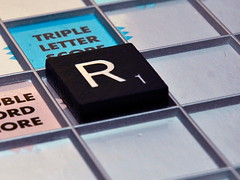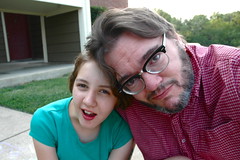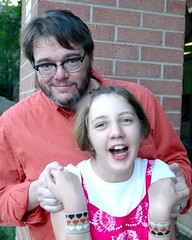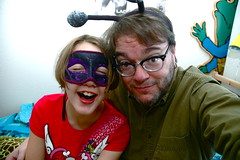 |
| Image courtesy of Support for Special Needs |
As I mentioned last week, I was privileged to speak to the BlogHer '11 Special Needs Mini-Conference in San Diego. If you'd like to read what others have to say about it, there's a page at Support for Special Needs where a number of blogs are listed. I'll keep my own comments brief since I was a participant and probably ought to keep the "Gosh, I was swell!" remarks to a minimum.
(Incidentally, there's also a transcript of sorts, but be warned: it reads VERY oddly, like something translated into another language -- Martian, perhaps -- and then back into English. I sound as if I suffered a head injury shortly before the panel. To the best of my recollection, I did not.)
I will say that my fellow panelists, Aurelia Cotta and Shannon des Roches Rosa were amazing. Both were poignant and intelligent, and happily made it a bit more difficult for me to speak intelligently. (If Aurelia was the heart of the panel and Shannon the brains, I guess I was the mouth. This will come as a tremendous surprise to exactly no one.) I keep hearing rumors of a soon-to-be available podcast, which I will post if such an animal actually steps out of the woods in the near future.
These kinds of conferences serve as important sources of information, as I've learned over the past few years. And this one was no exception. But I think the real value of the Mini-Con, especially for someone who has never attended a gathering like this, can best be measured in the unexpected sense of community they find. There really is strength in numbers, but only if you have a real understanding of exactly how many people are in the same boat with you. The crushing sense of isolation represents an almost universal experience for special needs families, and it really can be the thing that ultimately destroys our spirits. Something like the Mini-Conference gives us all a chance to share experiences and stories. On a visceral level, it gives us the chance to simply occupy the same space, to breathe the same air as others who well and truly get it. It's impossible to quantify just how powerful that experience can be, and how deeply it can change how we approach our lives and the lives of our kids and loved ones.
Advocacy begins in places like this. Disability advocacy in particular starts small, in communities based on specific diagnoses. Those communities grow, but not equally, and even the larger one are, by their very specificity, limited in what they can accomplish. I have stated, both here and in public appearances, that I believe the fight for disability rights, particularly in the hearts and souls of our typical fellow citizens, will constitute the next great civil rights movement in this country. And I believe that, with all my heart. But for that to happen, all of our little communities of need will have to become a unified group. We must embrace the idea that the rising tide really can lift all our boats. More to the point, the retreating tide can and very probably will leave us all stranded in the mud.
In looking for a way to create this unity, it makes sense to look for organizations who are already in place and already have a structure and a reach that can be utilized. Special Olympics has that structure, but I'm not sure they are a good match for the strong, entitled and impolite brand of advocacy that I believe will be necessary. Special Olympics focuses on a very specific and very positive message, and I doubt they want to stray very far from that. Which makes sense, honestly.
I think BlogHer might be a better fit, honestly, and I sincerely hope they are willing to keep moving forward with us. They provide an excellent and extremely high-profile platform for our advocacy, and I think we grant them a measure of depth and gravitas that serves them well. I am hopeful that a meaningful partnership will continue to build with BlogHer.
A hashtag grew out of the post-BlogHer discussions: #moreincommon. It also serves as a mantra for Support for Special Needs, the idea that as persons with disabilities and their families, caregivers and advocates, we have more in common with each other than that which separates us. I am obviously on board with that concept.
But I'm going to suggest that the real commonality isn't between all the different flavors of our very diverse disability community. It's between us and YOU. Those of you from typical families, those for whom all of this might feel like someone else's struggle, you are part of this, too. You simply must be. Our kids, our families, they need you to be. For an authentic sea change to occur in our society about how disabilities are perceived and how our children's humanity is recognized, you have to be on board.
And here's the thing. You WANT to be. This cause is on the right side of history. You want to be on the side that is marching on behalf of these folks, voicing the advocacy that so many of them are unable to voice for themselves. You don't want to find yourself, through apathy or outright opposition, with the modern-day equivalent of the mob with the water hoses and the bitey dogs and the clenched fists, shouting "No, you're a burden on us. Go back to the shadows." And we don't just want you there with us. We need you. This is your call to arms, too.
Entering into authentic relationships with those of your fellow citizens who seem to be the least reachable and who maybe even challenge your own feelings about what it means to be human, that's an opportunity to grow that you can't afford to walk away from. Our kids have a lot to gain by your participation, but if you are willing to really explore the things we all have in common, I promise that ultimately, you will have benefitted the most.















